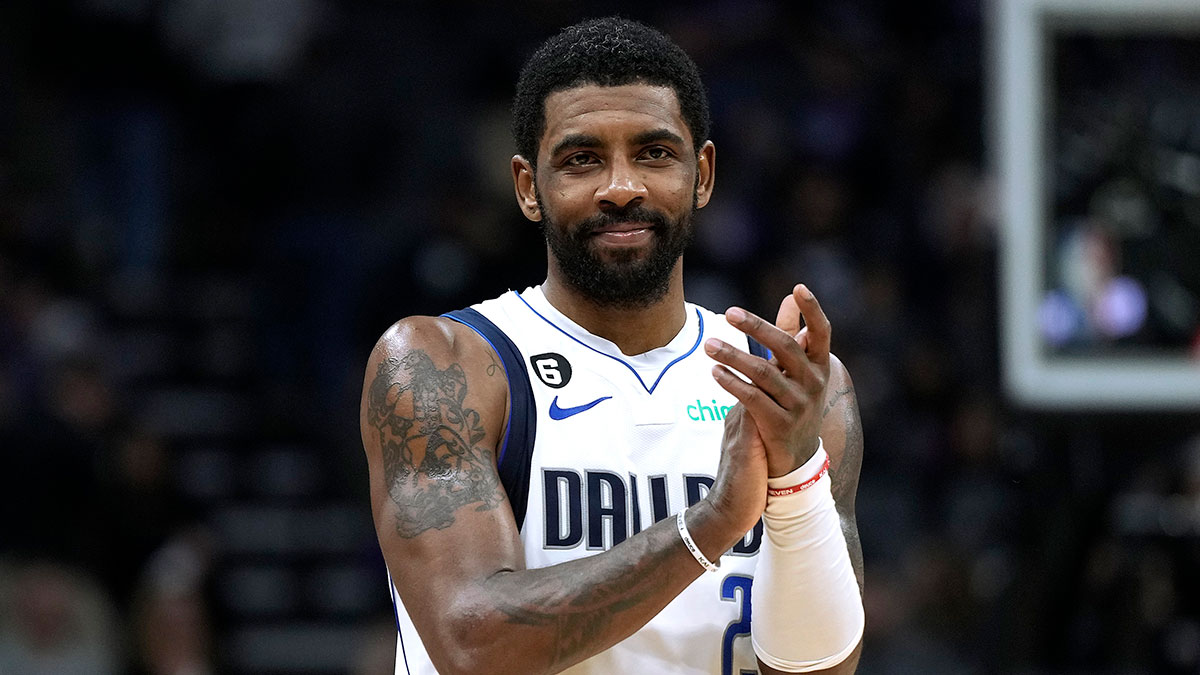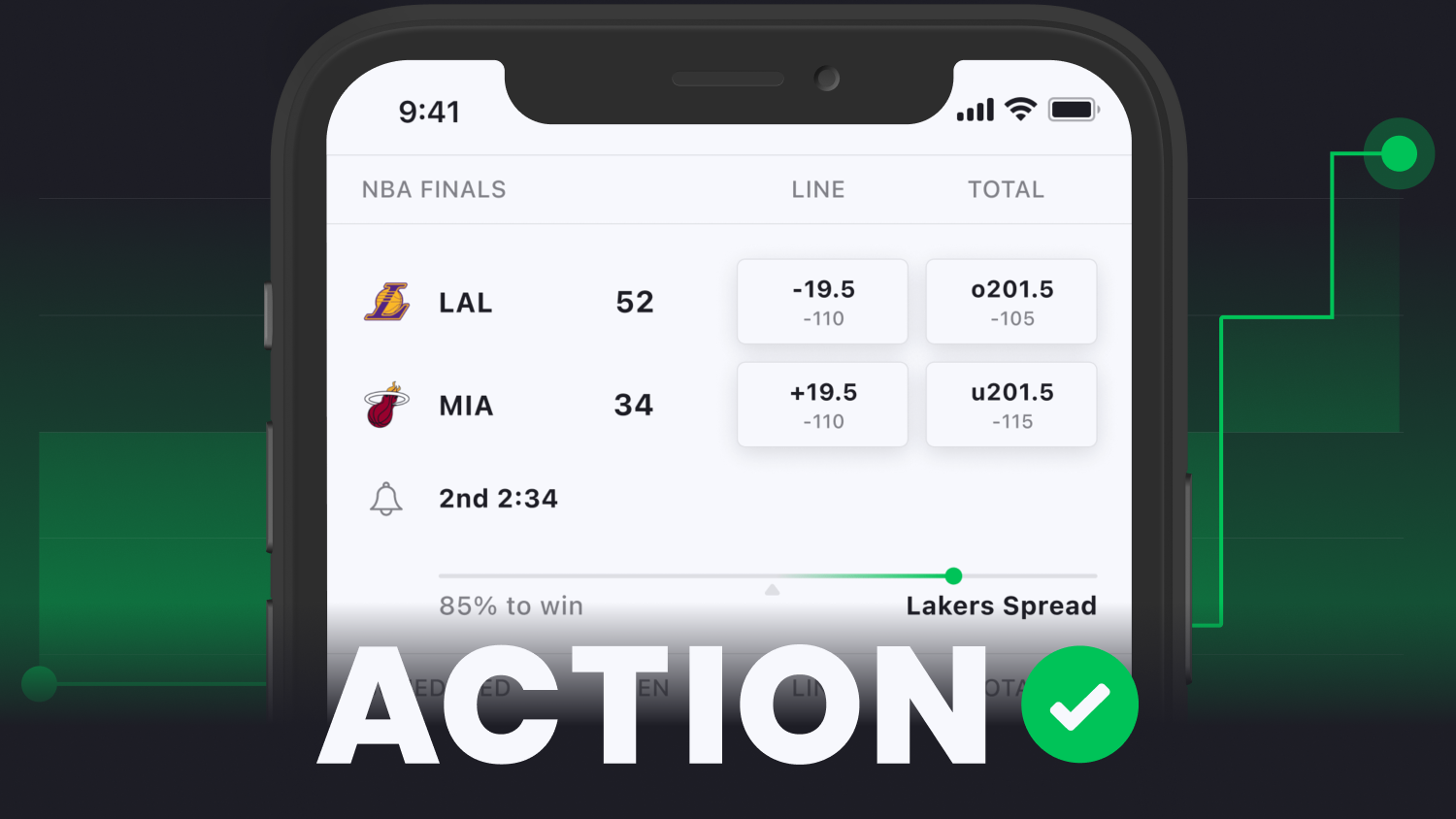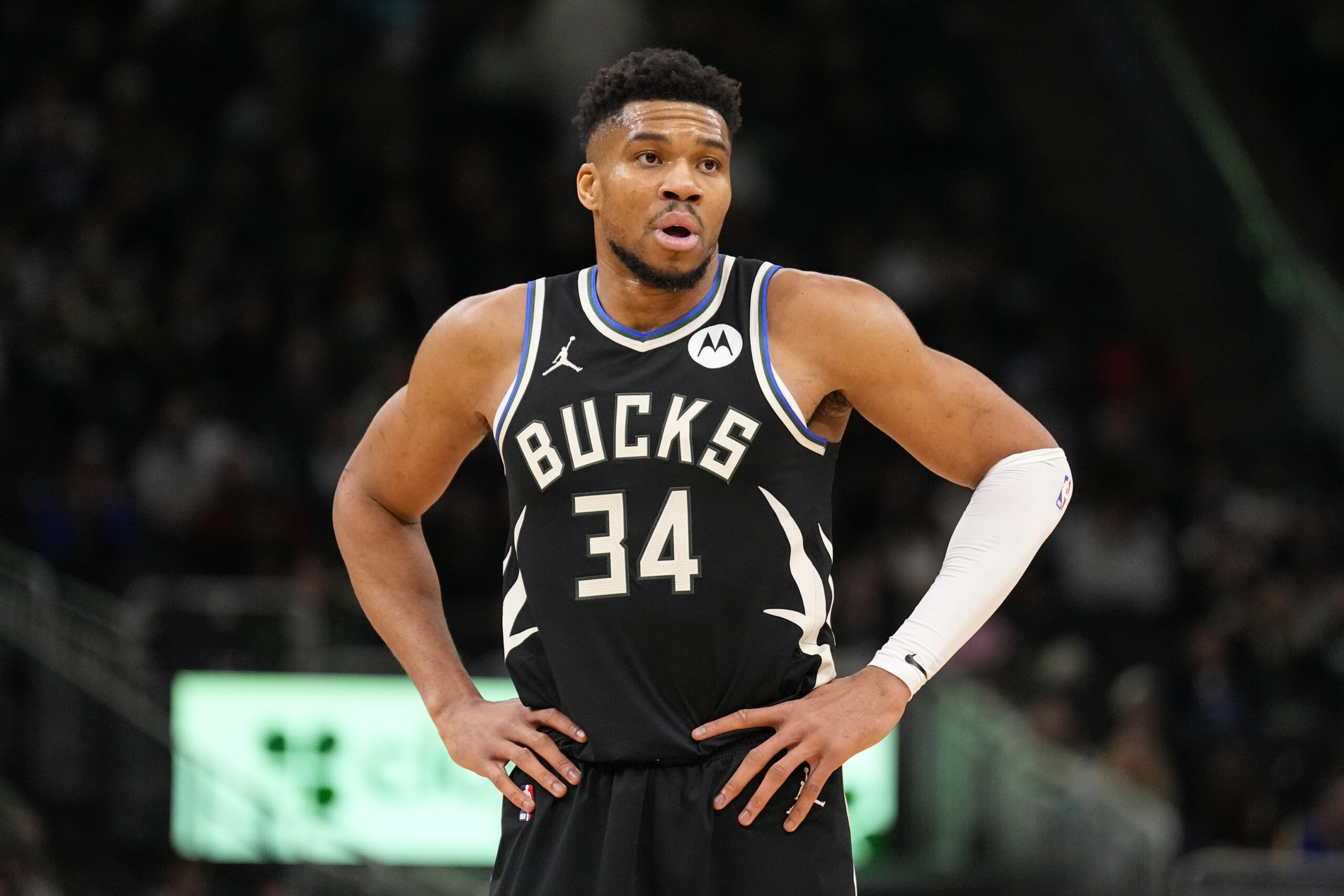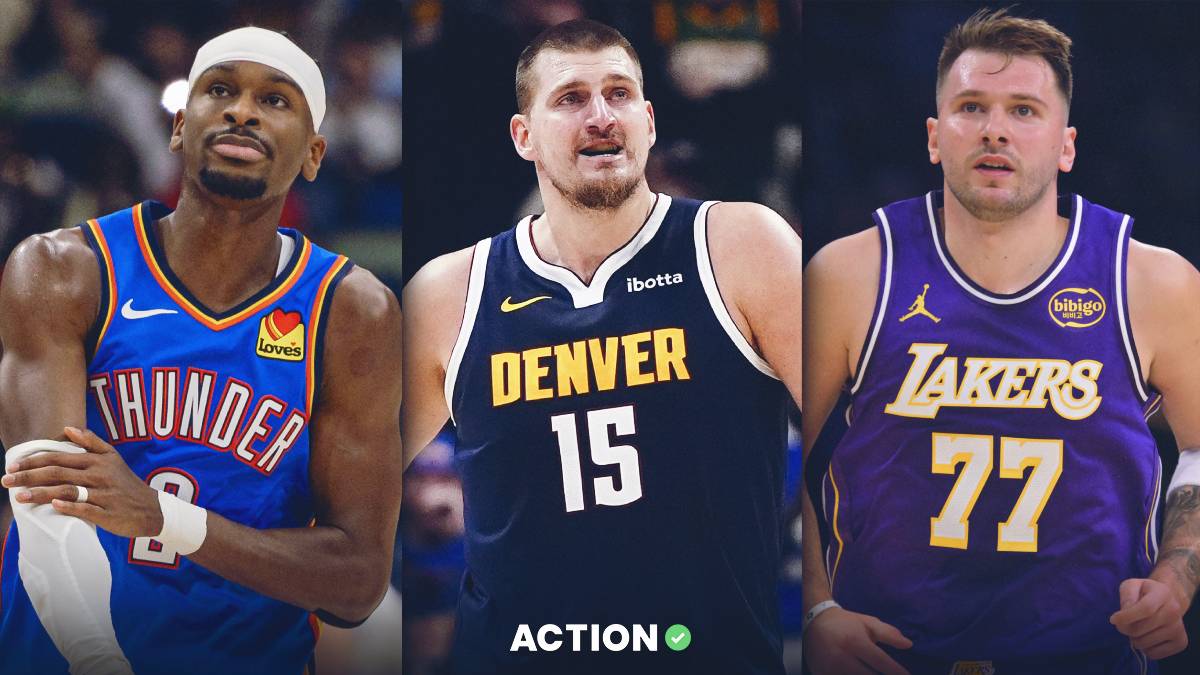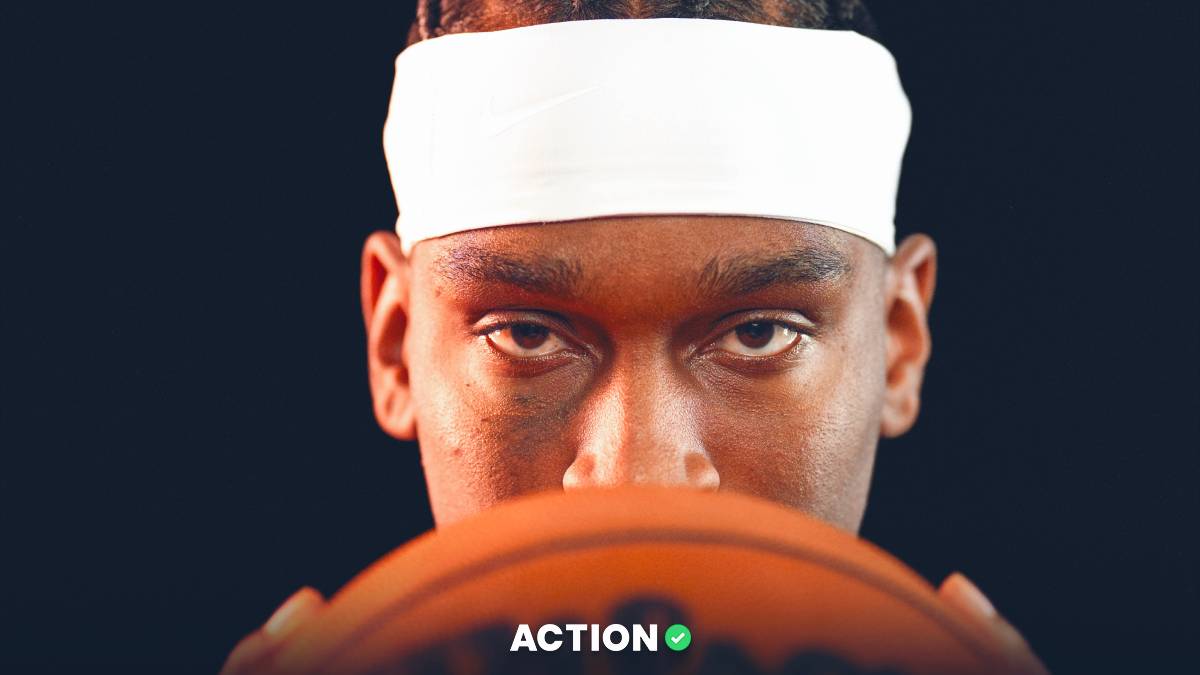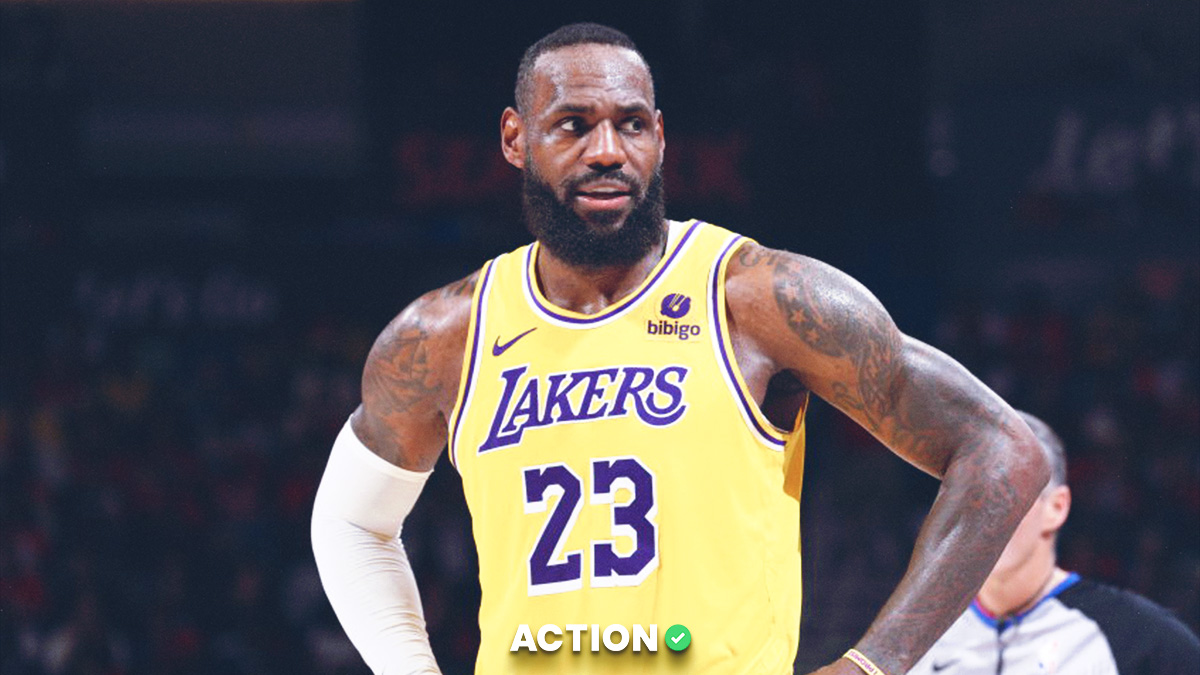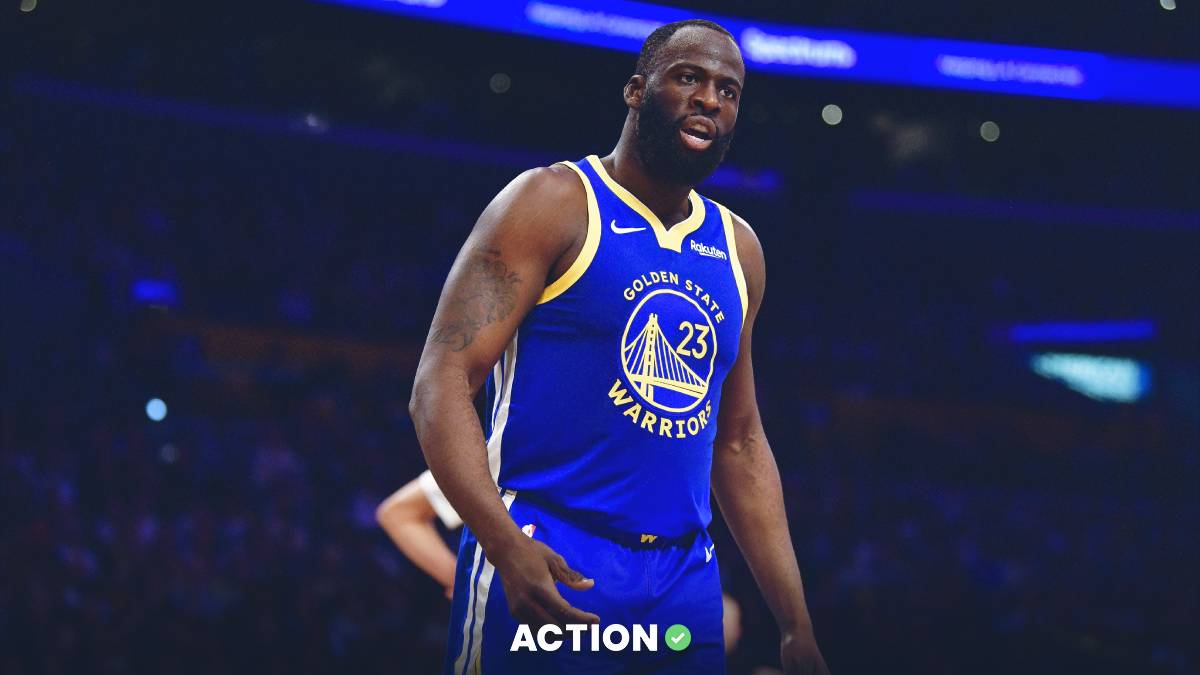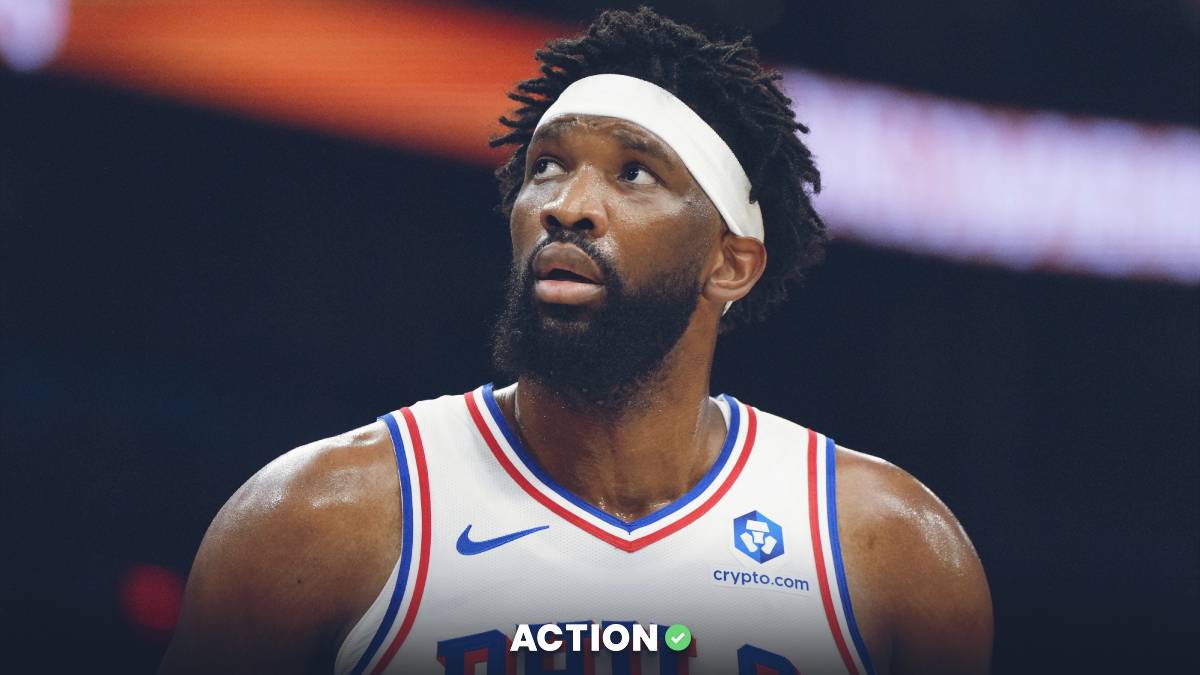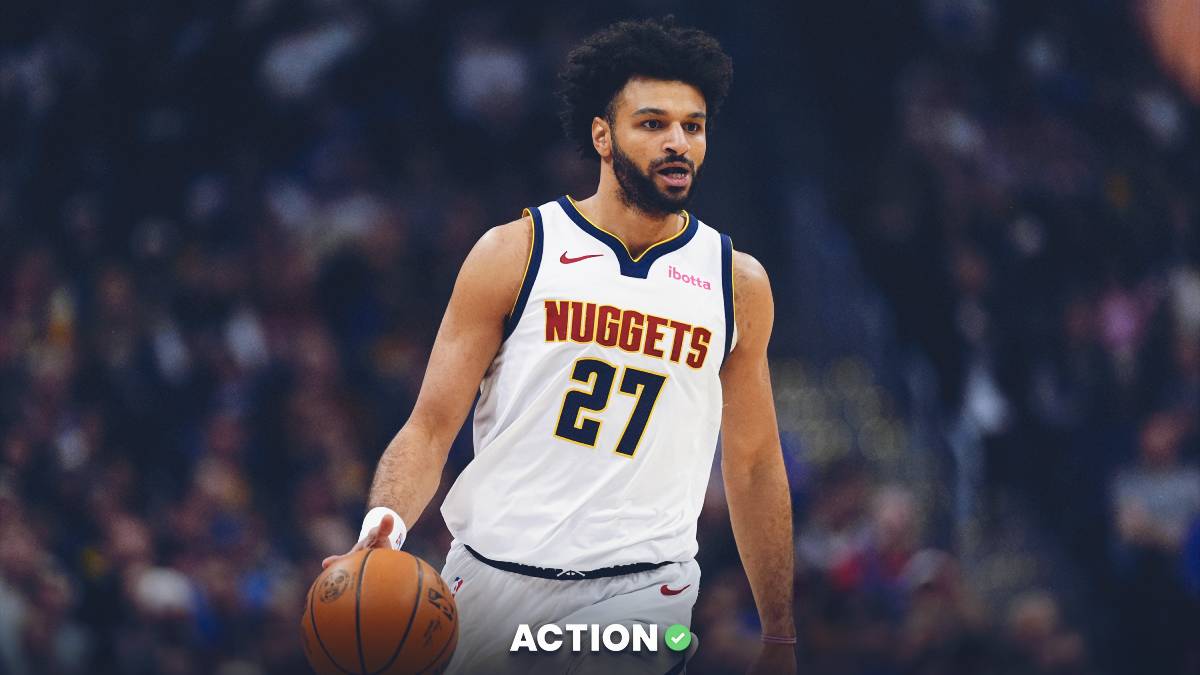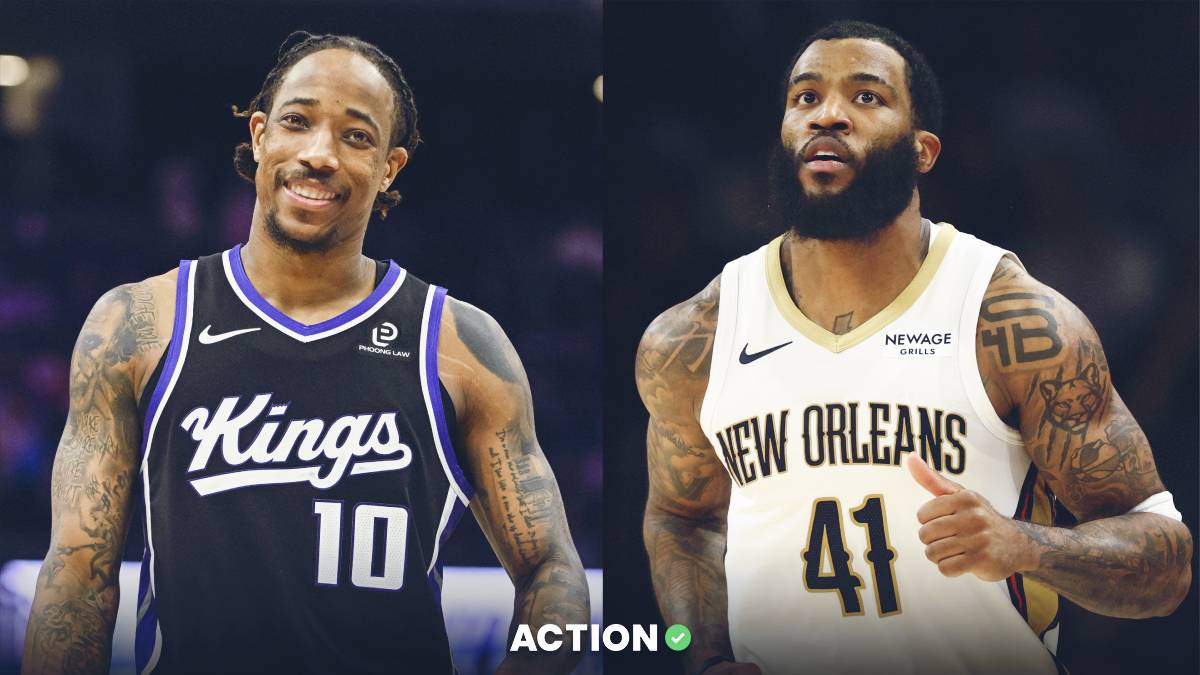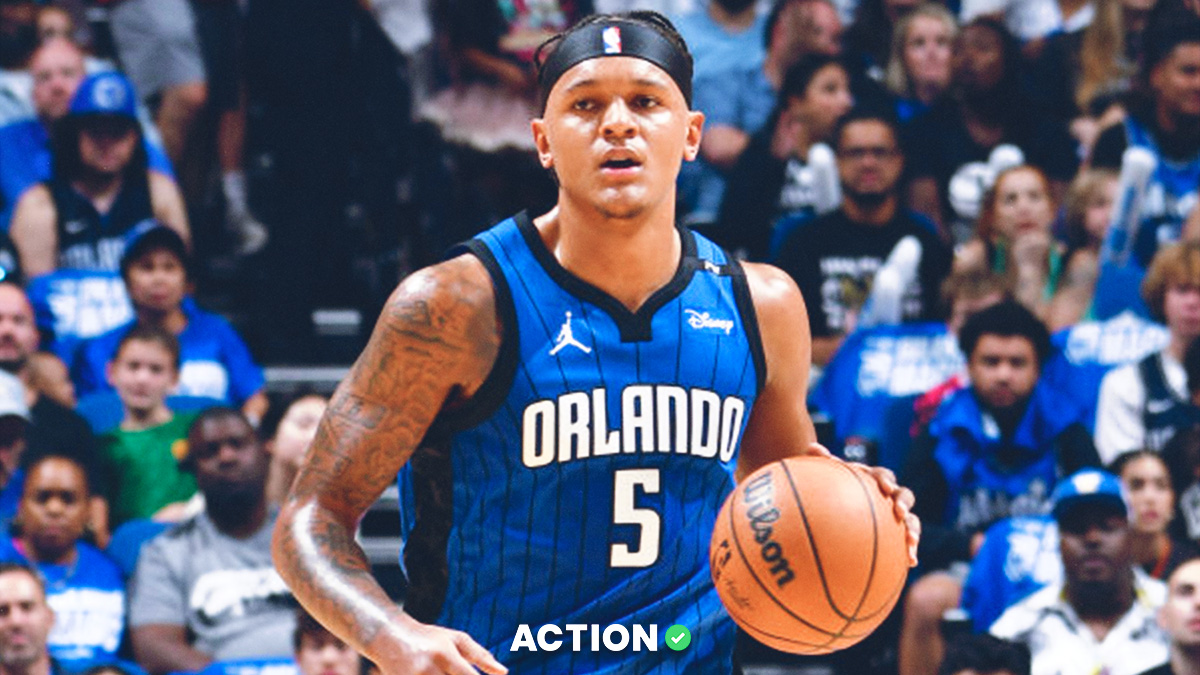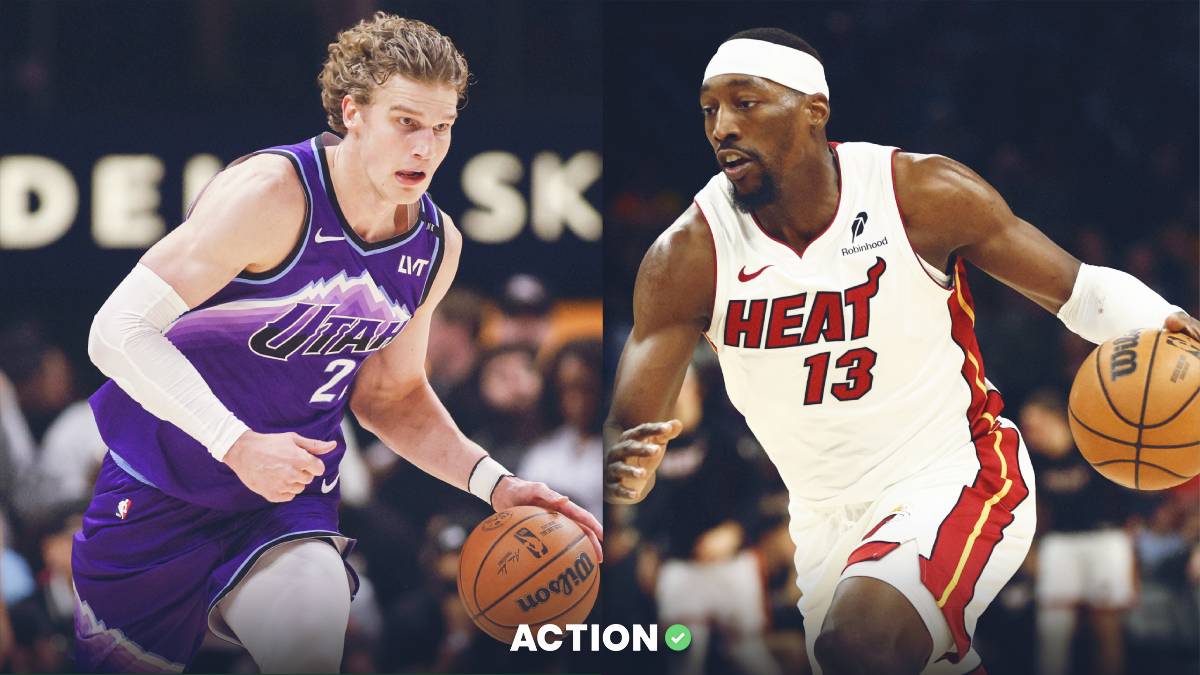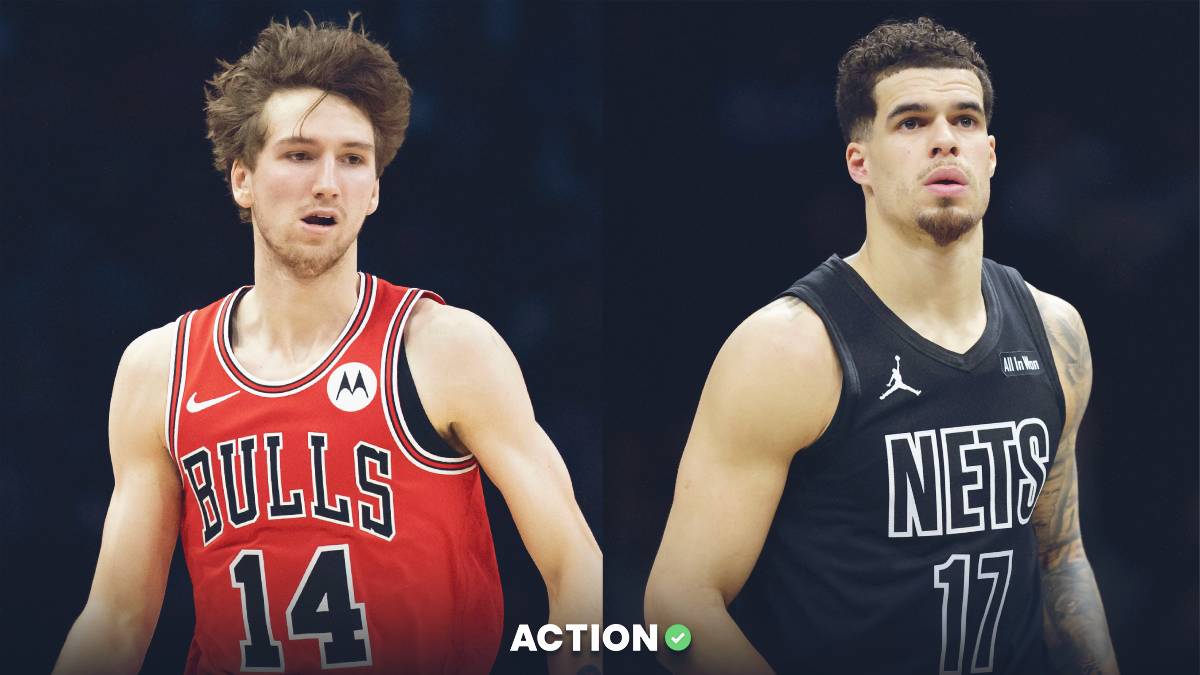The Dallas Mavericks and Kyrie Irving reportedly agreed to a three-year, $126 million contract in the first hour of NBA free agency on Friday. The deal includes a player option for the third year.
Let's attack this from a few angles:
- Did the Mavericks have to re-sign Irving?
- Did the Mavericks have to re-sign Irving to that much?
- Does it matter that the Mavericks re-signed Irving to that much?
- What happens next for the Mavs?
Did the Mavericks have to re-sign Irving?
Yes.
Good, next question.
… OK, fine. The Mavericks had to re-sign Irving because they had no choice. After they traded multiple starters to the Brooklyn Nets for him, they were pot committed. They would have lost Irving for nothing.
The only alternative was to negotiate a sign-and-trade. There's nothing that's known to be on the table, either in reported talks or what league sources indicated. The Phoenix Suns' trade for Bradley Beal effectively ended that possibility, and the Los Angeles Lakers weren't enthusiastic about such an option either. There may have been an option out there, but it would have resulted in a talent downgrade.
Dallas would not have had adequate cap room to make another big splash, and there wasn't a quality star to add on the market even if it had room.
This was a no-brainer to bring him back. Two things can be simultaneously true:
- Dallas objectively fell apart this past season after the Irving trade, going from a playoff team to purposefully tanking to miss the play-in tournament in order to keep its draft pick.
- Irving played well for the Mavericks and wasn't the reason for their collapse, though the record with Irving and Luka Doncic was awful (5-11).
Hypothetically, Irving provides the team with another ball handler to reduce Doncic's on-ball usage, a shooter to spread the offense and a point guard to run the offense when Doncic is on the bench.
So yes, keeping him was the move.
Did the Mavericks have to re-sign Irving to that much?
This a separate question.
Reports surfaced between Thursday night and Friday's free agency start (6 p.m. ET) that several teams had meetings lined up with Irving — but those meetings never happened.
While Kyrie Irving had planned earlier in the day to meet with several teams about free agency, Dallas' 3-year, $126 million offer changed those plans. "We planned to take the meetings but decided that Dallas would be our place," his agent Shetellia Riley Irving told @CBSSports.
— Bill Reiter (@sportsreiter) June 30, 2023
League sources began indicating late Friday that those meetings were largely requested by Irving's representation and not by teams. By 5 p.m. ET, word had gotten out that the Houston Rockets were not serious about pursuing Irving and, instead, were focused on Fred VanVleet, who they had long been linked to and came to terms with on a big-money, three-year deal. Likewise, the Suns seemingly had little intention of pursuing Irving given their trade for Bradley Beal.
More importantly, league sources indicated that no team was willing to go beyond two years for the mercurial Irving, who has missed time due to various injuries, a suspension after promoting anti-semitic material and a trade demand. Irving's talent is universally acknowledged, but it comes with various serious reservations.
So the question now is whether the Mavericks needed to invest that many years — Irving has a player option for the third year, effectively making it a three-year deal — for that much money.
It should be noted that the expectation after the trade was that Dallas would agree to a four-year, max deal with Irving. Seen through that lens, this seems like a bargain.
However, that was before:
A. The Mavericks completely imploded late in the season.
B. The market changed significantly both on a micro level in the evaluation of Irving and in the macro sense with how few teams were willing to spend given the restrictive nature of the new CBA.
Perhaps the best way to answer this question of whether the Mavericks needed to sign Irving for that contract is "It could have been worse."
Does it matter that the Mavericks re-signed Irving to that much?
Since the Mavericks were cap-strapped and would be over the cap no matter what, does the money really matter?
Not if Irving plays out the contract. If everything goes according to plan, then, ultimately, this doesn't help or hurt the Mavericks' ability to add other players significantly.
If you had moved him, you would be looking at role players and not a star, so you'd still be looking for another star in other deals. The only ramification is the luxury tax money spent, and fans should always want their teams to spend.
Of course, that's if Irving plays out the contract.
We live in the real world, so we need to live with the reality. And the reality is that Irving has had nothing but drama over the last seven years of his career. His Boston Celtics tenure ended with dysfunction and a pitiful end. The Nets tenure was an outright disaster from start to finish, with Irving asserting too much influence and missing too much time for reasons that have nothing to do with injuries (though he has had various ailments as well).
There is very little reason to believe Irving is 100% committed to Dallas now that he's secured this contract. That's fine, players can look at their careers only through being an independent contractor — it protects them from some of the harsh realities of the business. But it also increases the odds that Irving eventually decides to exert various antics to change his situation and/or find the next team willing to pay him big money.
That's where the money part comes in. If the Mavericks have to trade Irving down the line, his three-year deal — with a player option — at over $40 million per season becomes restrictive. That's a lot of salary to send out, making deals harder to find.
Maybe that's too cynical of a view, but with Irving and how the past seven years of his career have gone since "The Shot" in Game 7 of the 2016 NBA Finals, it's something that has to be considered.
What happens next?
The Mavericks made a great follow-up move by signing Seth Curry, using the space they cleared in the draft-day trade of Davis Bertans.
That gives them a quality shooter and guard to fill in when Doncic or Irving is off the floor, or out of the rotation for a stretch. They do, however, have too many centers. They're expected to re-sign Dwight Powell to go along with JaVale McGee, Richaun Holmes, Maxi Kleber and first-round draft pick Dereck Lively II.
The roster still seems unbalanced in terms of wings, and there are promising young players, but they're on a team expected to win now.
How they balance that will not only determine how this season of Mavericks basketball goes, but probably reflect how the Irving trade and re-signing looks in several years.


